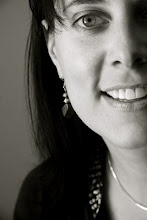Tuesday, February 25, 2014
Sunday, February 23, 2014
Paleo Eating for the TBI Survivor!
I'm absolutely convinced that healthy eating and consistent fitness has helped me recover from my TBI (almost recover. . . if you're a TBI Survivor reading this, you know what I mean by almost. You never fully and completely recover from brain trauma. But this is the best I've felt . . . like, ever, since my injury).
The best way to eat, for me, as a recovering TBI Survivor, is to eat according to the Paleo Diet. That means Paleolithic, also referred to as the Caveman Diet.
In fact, here's an article by a TBI Survivor who's also convinced that this eating plan helps her (lose weight, sleep better and deeper, build muscle, feel all-around "cleaner").
Admittedly I've fluctuated on and off the Paleo Bandwagon. But, I'm promising to get back on starting now. I'm excited!
Check out this article for more Paleo and TBI inspiration:
http://robbwolf.com/2012/04/02/paleo-world-changer/
If you have no idea what "eating Paleo" means, read this link: What is Paleo?
The best way to eat, for me, as a recovering TBI Survivor, is to eat according to the Paleo Diet. That means Paleolithic, also referred to as the Caveman Diet.
In fact, here's an article by a TBI Survivor who's also convinced that this eating plan helps her (lose weight, sleep better and deeper, build muscle, feel all-around "cleaner").
Admittedly I've fluctuated on and off the Paleo Bandwagon. But, I'm promising to get back on starting now. I'm excited!
Check out this article for more Paleo and TBI inspiration:
http://robbwolf.com/2012/04/02/paleo-world-changer/
If you have no idea what "eating Paleo" means, read this link: What is Paleo?
Labels:
eating for life,
Paleo Diet,
TBI,
TBI Survivor
Wednesday, February 12, 2014
Kevin Pierce: I get it! "A Sports Star's 'Crash,' Then The Search For A New Normal"
This is my favorite line from this wonderful story about TBI Survivor and Snowboarder, Kevin Pierce:
"Gaining the humility to accept limitations is no easy task for anyone."
(I can't wait to see the movie)
2014 Olympics, Snowboarding and TBI
It's the middle of the 2014 Sochi Olympics and I'm loving it! I particularly love to watch Snowboarding because I'm taking snowboarding lessons this year (it's really fun, but really hard to balance on a board). As I ride up the mountain on the chairlift during my lessons, I'm always amazed by how many boarders I see doing tricks on the mountain while NOT WEARING A HELMET!
Even a tiny fall can result in a tiny concussion and a tiny concussion equals a tiny brain injury. You may have heard about or watched snowboarder Sarka Panchochova of the Czech Republic split her helmet after a nasty crash on the slopestyle course. Her spokesperson said she "might have suffered a small concussion." (eeeek. a small concussion is just as bad as a large concussion)
Here is another sports and TBI story about a female hockey player:
The All-American ice hockey forward had recently been sidelined with a major concussion two years ago, Meghan Duggan was lying nearly comatose at her parents' house in Danvers, Massssion. "I couldn't talk or eat," Duggan says. "I just sat at home in the dark, day after day, month after month." She had been named the best female hockey player in the country in March 2011, but just nine months later, it was unclear if she'd ever return to the ice. "I just kept trying to be patient," Duggan says. "Obviously with an injury like that, you can't really force it." She spent a lot of time alone in her room with the shades drawn. (Concussion symptoms typically include headaches, dizziness, and trouble concentrating.) Reading, watching television, and even walking in the neighborhood were too painful. “It’s hard to explain if you have never had a concussion, but you don’t feel like yourself — something feels wrong.”"
Even a tiny fall can result in a tiny concussion and a tiny concussion equals a tiny brain injury. You may have heard about or watched snowboarder Sarka Panchochova of the Czech Republic split her helmet after a nasty crash on the slopestyle course. Her spokesperson said she "might have suffered a small concussion." (eeeek. a small concussion is just as bad as a large concussion)
Here is another sports and TBI story about a female hockey player:
The All-American ice hockey forward had recently been sidelined with a major concussion two years ago, Meghan Duggan was lying nearly comatose at her parents' house in Danvers, Massssion. "I couldn't talk or eat," Duggan says. "I just sat at home in the dark, day after day, month after month." She had been named the best female hockey player in the country in March 2011, but just nine months later, it was unclear if she'd ever return to the ice. "I just kept trying to be patient," Duggan says. "Obviously with an injury like that, you can't really force it." She spent a lot of time alone in her room with the shades drawn. (Concussion symptoms typically include headaches, dizziness, and trouble concentrating.) Reading, watching television, and even walking in the neighborhood were too painful. “It’s hard to explain if you have never had a concussion, but you don’t feel like yourself — something feels wrong.”"
I love the last line "It's hard to explain if you have never had a concussion, but you don't feel like yourself - something feels wrong."
EXACTLY. EXACTLY. That is a perfect way to explain what a TBI feels like - something just feels "wrong," and you don't fee like yourself.
Labels:
2014 Olympics,
I'm a Brain Injury Survivor,
Sochi,
TBI
Subscribe to:
Posts (Atom)





